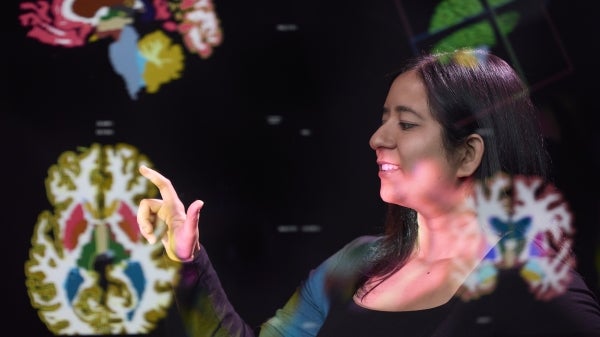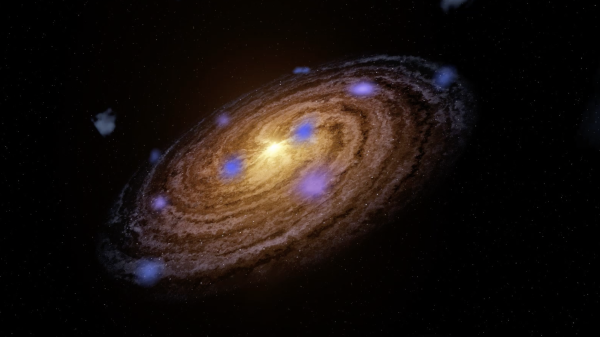ASU PhD student receives fellowship for research regarding insect behavior

PhD candidate Maddie Ostwald conducts research about social evolution in bees by studying their cooperative behavior.
Why do certain animals form groups instead of living in isolation? Creatures like bees in a hive will work with each other to adapt to their environment and increase chances of survival. Arizona State University School of Life Sciences PhD student Maddie Ostwald is one of the researchers seeking to understand how and why this behavior occurs.
Ostwald has been awarded the Mistletoe Research Fellowship from the Momental Foundation for her research of insect behavior.
Ostwald is a PhD candidate in animal behavior studying social evolution in bees. Her research focuses on the cooperative behavior of these insects.
She is a member of ASU’s Social Insect Research Group, working with Jennifer Fewell, President’s Professor and interim director of the School of Life Sciences.
Ostwald studies carpenter bees to determine what factors cause them to switch between different social states. Her research has shown that the environment around insects shapes their social decision, and group living can become adaptive in competitive conditions.
Her passion for bees and social behavior began while working at the Children's Museum of Maine. There, she taught a program about honey bees using an observation hive. Her curiosity about the tasks bees would perform in groups helped spark her educational path. Ostwald graduated with a Bachelor of Science in biological sciences in 2016 from Cornell University, where she began her study of collective behavior. After graduation, Ostwald worked at the Smithsonian Tropical Research Institute, where she continued studying the behavior of bees.
“Since I was an undergrad I really wanted to come study at ASU because of its renowned Social Insect Research Group, which is a group of labs that study various aspects of the biology of social insects,” she said. “I was also excited for the opportunity to work in the Sonoran Desert, which has greater bee diversity than anywhere else in the world.”
After receiving her Master of Science from the University of Edinburgh in 2017, Ostwald began her PhD program at ASU. Since her time at the university, she has had many research opportunities with the faculty and has been a co-author of several publications.
The Mistletoe Research Fellowship from the Momental Foundation will help Ostwald continue her research. The Mistletoe Research Fellowship is awarded annually to 20 fellows. These recipients are postdocs or PhD candidates who conduct research in various STEM fields.
The Momental Foundation’s mission in awarding this fellowship is “to build bridges between the academic, entrepreneurial and civil communities to create a more human-centered and sustainable future through technology.” The foundation will pair Ostwald with a technology hardware startup to participate in a research project.
This fellowship offers Ostwald a research grant that will be used to purchase new field equipment, help with the publishing of research in open-access journals and partially fund an upcoming trip to the University of Münster in Germany to study social evolution in ants.
In her time studying abroad in Germany, Ostwald will visit the lab of Jürgen Gadau at the University of Münster. There, she will study the genetics and chemical ecology of the California harvester ant. Ostwald intends to use this time to further her research of the genetic bases for cooperation and its evolutionary consequences.
"I'm really grateful for this unique opportunity to collaborate with and learn from non-academic groups, and to apply my PhD training to human-domain problems,” Ostwald said.
More Science and technology

Podcast explores the future in a rapidly evolving world
What will it mean to be human in the future? Who owns data and who owns us? Can machines think?These are some of the questions…

New NIH-funded program will train ASU students for the future of AI-powered medicine
The medical sector is increasingly exploring the use of artificial intelligence, or AI, to make health care more affordable and…

Cosmic clues: Metal-poor regions unveil potential method for galaxy growth
For decades, astronomers have analyzed data from space and ground telescopes to learn more about galaxies in the universe.…